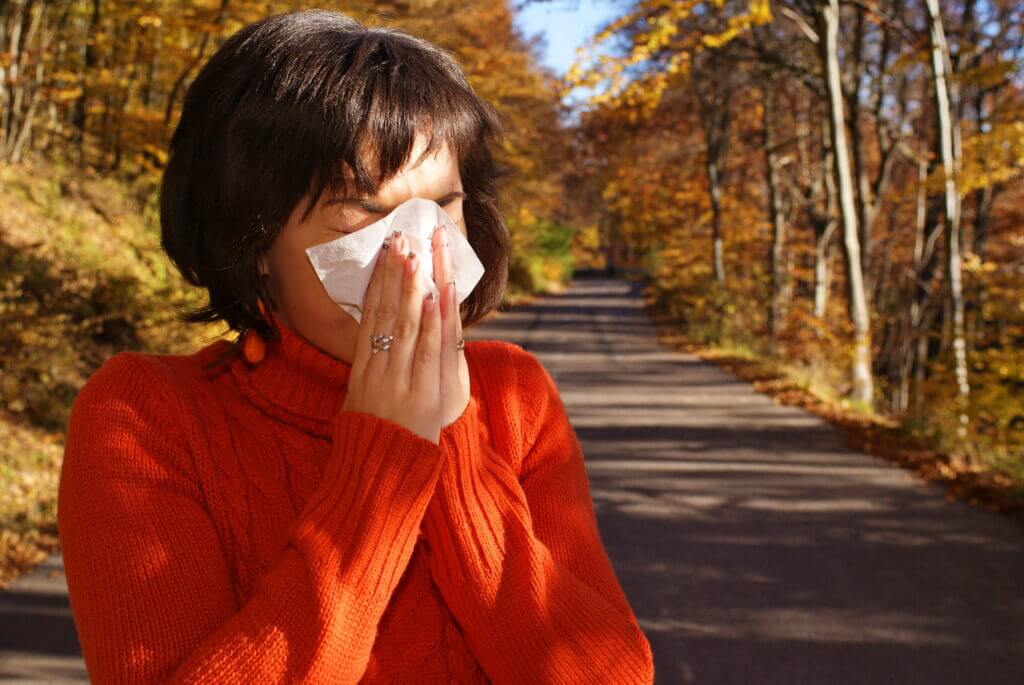Posted by: Metrolina Eye Associates in Eye Allergy

Red, itchy and watering eyes are a common sight throughout the Charlotte and Metrolina area each spring, and this year will be no exception. Those beautiful Carolina trees will be in full bloom by the end of April, and with that will come the yellow coating of pollen we are all familiar with. With pollen counts already reaching record highs this year, eye allergies are in full-swing and ahead of schedule for many.
In fact, many people with low-grade seasonal allergies who’ve never experienced clinical symptoms in years past or recent transplants to the Carolinas can expect to become symptomatic this year due to the mild winter and elevated allergen levels.
What Causes Eye Allergies?
People get eye allergies when their immune system overreacts to an allergen (the substance that causes irritation) like grass, pollen, dust and pet dander. When your eyes are exposed to an irritant your eyes release “histamine” in order to protect the eye. Unfortunately, your body’s response to the histamine causes blood vessels to swell and the result is red, itchy, watery eyes.
Who is Affected?
Current estimates suggest that at least 20% of the overall population suffers from some form of allergic conjunctivitis, many without ever seeking treatments.
What are the symptoms of Eye Allergies?
- Itching
- Redness
- Watering or tearing
- Burning
- Stickiness or mucous discharge
- Swelling
- Blurry Vision
How do I know if I have Eye Allergies?
Is it allergies or is it dry eye? Symptoms such as burning, tearing, red eye, blurred vision and stickiness are not always caused by allergies. Dry eye syndrome also mimics allergy eye symptoms and dry eye symptoms are often worse during allergy season. Since most anti-allergy medications can dry the eyes making dry eye symptoms worse distinguishing between these two problems is very important.
If your symptoms persist for more than a few days, you should seek the assistance of an Eye Care Professional, like the ones found at Metrolina Eye Associates.
Can I be tested for Eye Allergies?
Yes!! At Metrolina Eye Associates we offer a non-invasive, no-needle, diagnostic test designed to objectively diagnose specific allergies. We test 58 different allergens that are regionally specific to the Metrolina area and specific to the allergens most likely to cause eye symptoms. The test is covered and reimbursed by all major medical insurances and Medicare. Results can be interpreted within 10 to 15 minutes, allowing for immediate patient education on the sensitive allergens and methods of avoidance. The testing also allows your eye care professional to make recommendations about which type of treatments may be more or less effective for your particular set of allergies and your type of reaction.
How do you treat Eye Allergies?
For many patients, prevention of exposure is the best treatment, which is why knowing what you are allergic to is the first and most important step. Unfortunately, for so many of us in the Carolinas, completely eliminating exposure is nearly impossible. These people may need additional interventions.
Wear Protective Eye Wear
Protective eyewear can keep dust and pollen from ever reaching your eyes. This is especially important when doing yard work like mowing grass or planting flowers. Be sure to always wash your hands or wear gloves during these activities since touching your face can spread allergens directly to the eye surface. At Metrolina Eye Associates we prefer the wrap around style of sunglasses to help shield your eyes from irritants in the air.
Removing your contacts.
Because the surface of contact lenses can attract and accumulate airborne allergens, consider wearing only eyeglasses during allergy season. Switching to daily disposable contacts that you discard after a single use may also help avoid the build-up of allergens and other debris on your lenses.
Change Your Air Filter, Wash Your Pillowcase
Simple things such as changing your air filter for your air conditioner or washing your pillow case more often and taking a shower before you go to bed all help reduce the pollens that collect on your hair and clothes throughout the day.
Cold Compresses and Chilled Eye Drops
Artificial tears can rinse offending allergens from the surface of the eye. Keeping them chilled in the refrigerator will also provide welcome comfort for itching, burning, dry eyes. Cold compresses can minimize swelling and often alleviate itching. Apply a cool, damp clean cloth to your face and close your eyes for a few minutes when you can.
Over-The-Counter (OTC ) Eye Drops
There are many OTC allergy eye drops on the market today. They typically contain both an antihistamine and a blood vessel constrictor to “get the red out”. The problem with these types of drops is that while they may help reduce symptoms, they do not treat the underlying allergic response. Overuse of these products can cause a “rebound” effect, causing the eyes to become red again, and often worse than before! For this reason, OTC allergy drops should be limited to an as needed basis and only for a week at a time during your most severe symptoms.
Prescription Eye Allergy Drops
The most commonly prescribed drops today combine an antihistamine and mast cell stabilizer. The antihistamine portion helps treat the current symptoms, while the mast cell stabilizer prevents future recurrences before they start. These drops are very effective and safe for long-term use.
What to do next?
The good news is that there’s no reason to suffer! We at Metrolina Eye Associates want you to be able to get out and enjoy this beautiful spring weather.
So, if you are curious about whether you have eye allergies, what you are allergic to, or which treatment is best for you, contact one of our allergy specialists at Metrolina Eye Associates today.
